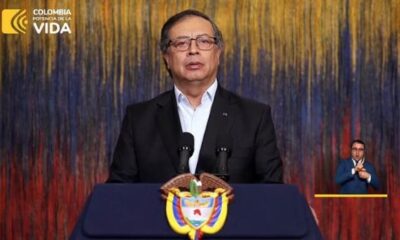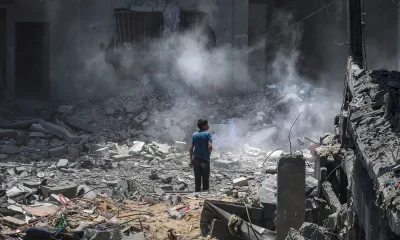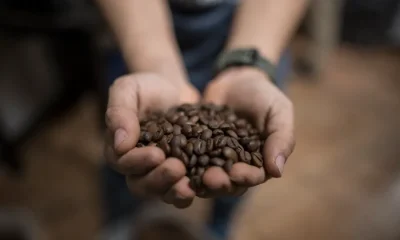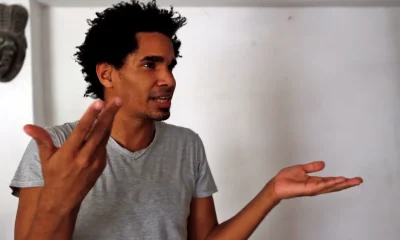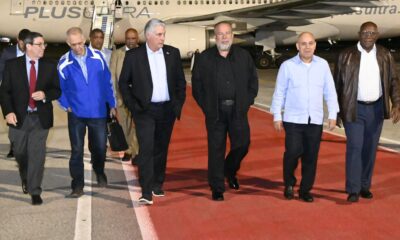International
International Workers’ Day celebrated in Cuba
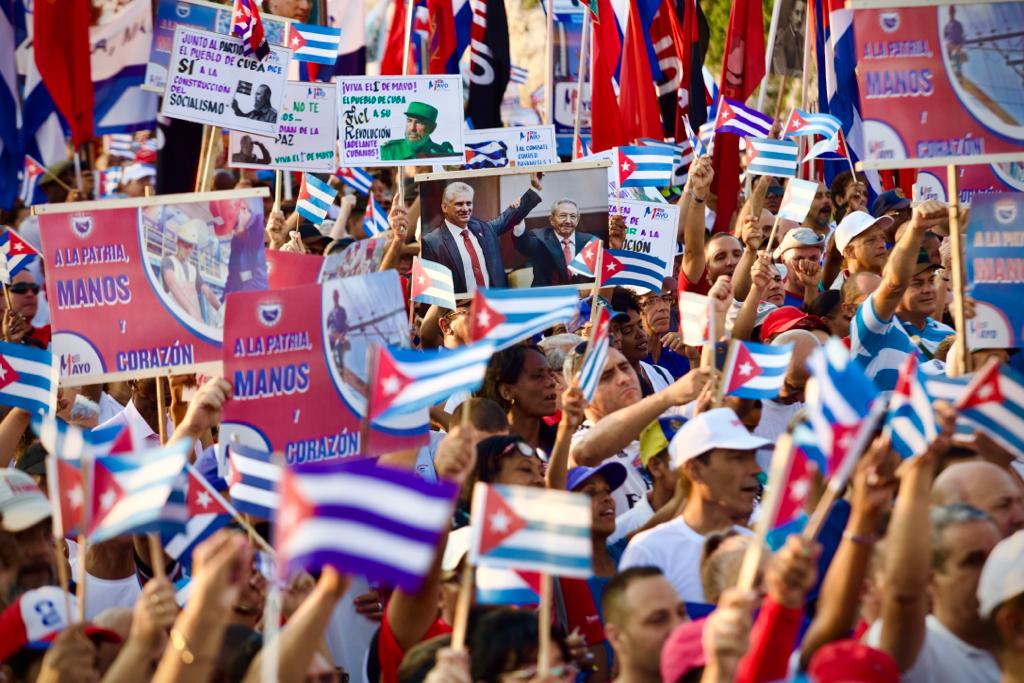
May 5 |
With acts, parades and artistic and cultural events, hundreds of thousands of Cuban workers participated this Friday in the celebration of International Workers’ Day, showed their willingness to continue contributing to the development of the country without departing from the path of socialism and showed solidarity with the struggles of workers around the world.
The celebration was called by the Central de Trabajadores de Cuba (CTC) and was postponed until this Friday due to inclement weather. Due to the economic situation, this time the events were organized in each municipality, so the celebration of 164 was foreseen and popular participation was extended.
The main event took place in Havana and was headed by the leader of the Cuban Revolution, Army General Raúl Castro Ruz, and Cuban President Miguel Díaz-Canel Bermúdez.
Before more than one hundred thousand people gathered on Havana’s Malecon, CTC Secretary General Ulises Guilarte said that Cubans are fighting with their own strength and talent to overcome objective difficulties and internal insufficiencies on the road to development.
He emphasized that they are focused on the economic battle, expanding food production, increasing income collection for the country, strengthening the socialist state enterprise and increasing foreign investment, among other goals.
He explained that this collective effort seeks to improve the supply of products and services, control price increases and increase the value of salaries and pensions.
Guilarte denounced the impact of the economic, commercial and financial blockade of the United States (U.S.) against Cuba, which translates into countless difficulties in daily life and is considered the greatest violation of human rights of the inhabitants of the Caribbean nation.
He recalled that only those who fight and resist have the right to triumph, as Cuban revolutionary leader Fidel Castro Ruz once said. He said that his compatriots will never surrender or give up the desire to conquer new victories.
He stressed the value of unity and said that, in addition to facing the challenges of the country’s development, workers will maintain their solidarity with other peoples in the face of the crisis of the capitalist system and its neoliberal policies.
He pointed out that the U.S. articulates new campaigns of manipulation, lies and hatred against the Revolution and this time tried to spread negative opinion matrixes on the popular support to the May Day celebration.
Guilarte considered that Friday’s events and parades, supported by thousands of Cubans, explicitly refuted this thesis, and stressed that what happened is proof of the majority support of the people for the Revolution and its continuity.
The celebration of May Day in Cuba included the celebration in Havana of the International Meeting of Solidarity with Cuba and Anti-imperialism 200 years after the Monroe Doctrine, which took place between April 29 and May 2. Around 1,300 guests from different parts of the world attended the event in the Cuban capital.
After postponing to Friday the celebration of International Workers’ Day, the Cuban government declared May 5 a labor holiday and thus allowed the massive participation of the people in the working class celebration.
International
U.S. Senate Rejects Budget, Bringing Government Closer to Shutdown Amid DHS Dispute

The U.S. Senate voted on Thursday against a budget proposal in a move aimed at pressuring changes at the Department of Homeland Security (DHS), following the killing of two civilians during a deployment of immigration agents in Minneapolis.
All Senate Democrats and seven Republican lawmakers voted against the bill, which requires 60 votes to advance, pushing the country closer to a partial government shutdown that would cut funding for several agencies, including the Pentagon and the Department of Health.
The rejection came as Senate leaders and the White House continue negotiations on a separate funding package for DHS that would allow reforms to the agency. Proposed measures include banning Immigration and Customs Enforcement (ICE) agents from wearing face coverings and requiring them to use body-worn cameras during operations.
The vote took place just hours after President Donald Trump said he was “close” to reaching an agreement with Democrats and did not believe the federal government would face another shutdown, following last year’s record stoppage.
“I don’t think the Democrats want a shutdown either, so we’ll work in a bipartisan way to avoid it. Hopefully, there will be no government shutdown. We’re working on that right now,” Trump said during a Cabinet meeting at the White House.
International
Trump Says Putin Agreed to One-Week Halt in Attacks on Ukraine Amid Extreme Cold

U.S. President Donald Trump said on Thursday that he secured a commitment from Russian President Vladimir Putinto halt attacks against Ukraine for one week, citing extreme weather conditions affecting the region.
“Because of the extreme cold (…) I personally asked Putin not to attack Kyiv or other cities and towns for a week. And he agreed. He was very pleasant,” Trump said during a Cabinet meeting broadcast by the White House.
Trump acknowledged that several advisers had questioned the decision to make the call.
“A lot of people told me not to waste the call because they wouldn’t agree. And he accepted. And we’re very happy they did, because they don’t need missiles hitting their towns and cities,” the president said.
According to Trump, Ukrainian authorities reacted with surprise to the announcement but welcomed the possibility of a temporary ceasefire.
“It’s extraordinarily cold, record cold (…) They say they’ve never experienced cold like this,” he added.
Ukrainian President Volodymyr Zelensky later commented on the announcement, expressing hope that the agreement would be honored.
International
Storm Kristin Kills Five in Portugal, Leaves Nearly 500,000 Without Power

Storm Kristin, which battered Portugal with heavy rain and strong winds early Wednesday, has left at least five people dead, while nearly half a million residents remained without electricity as of Thursday, according to updated figures from authorities.
The revised death toll was confirmed to AFP by a spokesperson for the National Emergency and Civil Protection Authority (ANPEC). On Wednesday, the agency had reported four fatalities.
Meanwhile, E-Redes, the country’s electricity distribution network operator, said that around 450,000 customers were still without power, particularly in central Portugal.
Emergency services responded to approximately 1,500 incidents between midnight and 8:00 a.m. local time on Wednesday, as the storm caused widespread disruptions.
The Portuguese government described Kristin as an “extreme weather event” that inflicted significant damage across several regions of the country. At the height of the storm, as many as 850,000 households and institutions lost electricity during the early hours of Wednesday.
Several municipalities ordered the closure of schools, many of which remained shut on Thursday due to ongoing adverse conditions.
Ricardo Costa, regional deputy commander of the Leiria Fire Brigade, said residents continue to seek assistance as rainfall persists.
“Even though the rain is not extremely intense, it is causing extensive damage to homes,” he noted.
In Figueira da Foz, a coastal city in central Portugal, strong winds toppled a giant Ferris wheel, underscoring the severity of the storm.
-

 Central America4 days ago
Central America4 days agoGuatemala Police Arrest Prison Guard Caught in the Act of Extortion
-

 Central America4 days ago
Central America4 days agoHonduras swears in conservative president Asfura after disputed election
-

 Central America4 days ago
Central America4 days agoBukele leads public trust rankings as UCA survey highlights gains in security
-

 International3 days ago
International3 days agoFootball Fan Killed in Clashes After Colombian League Match
-

 International4 days ago
International4 days agoDoomsday clock moves to 85 seconds before midnight amid rising global risks
-

 Central America3 days ago
Central America3 days agoGuatemala President Says Starlink Terminal Found Inside Prison
-

 International4 days ago
International4 days agoWinter Storm Fern Leaves 30 Dead and Over One Million Without Power Across the U.S.
-

 Sin categoría4 days ago
Sin categoría4 days agoEight Killed in Series of Armed Attacks in Ecuador’s Manabí Province
-

 International2 days ago
International2 days agoU.S. Senate Rejects Budget, Bringing Government Closer to Shutdown Amid DHS Dispute
-

 International4 days ago
International4 days agoSpain approves plan to regularize up to 500,000 migrants in Historic Shift
-

 International3 days ago
International3 days agoMissing Spanish Sailor Rescued After 11 Days Adrift in Mediterranean
-

 International3 days ago
International3 days agoRubio Says U.S. Could Participate in Follow-Up Russia-Ukraine Talks
-

 Sin categoría4 days ago
Sin categoría4 days agoEl Salvador Launches Fourth Year of Ocean Mission to Protect Marine Ecosystems
-

 Central America22 hours ago
Central America22 hours agoPanama Supreme Court Strikes Down Panama Ports Concession as Unconstitutional
-

 International2 days ago
International2 days agoStorm Kristin Kills Five in Portugal, Leaves Nearly 500,000 Without Power
-

 Central America22 hours ago
Central America22 hours agoU.S. and Guatemala Sign Trade Deal Granting Zero Tariffs to Most Exports
-

 International2 days ago
International2 days agoMan Arrested After Vehicle Crashes Into Jewish Institution in Brooklyn
-

 International2 days ago
International2 days agoTrump Says Putin Agreed to One-Week Halt in Attacks on Ukraine Amid Extreme Cold

























